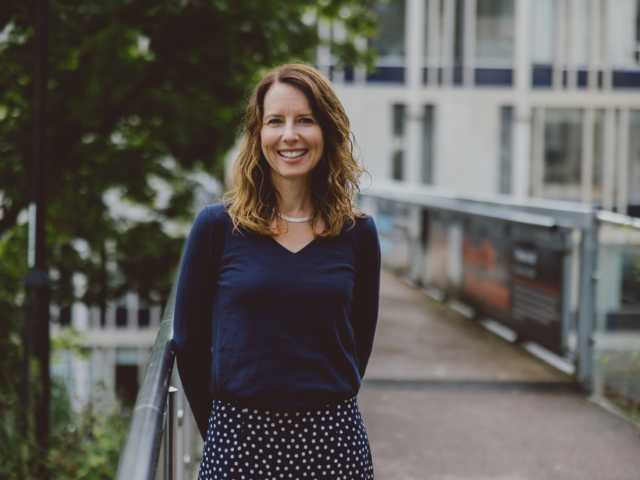When I heard that Understanding Society was starting a Data User Group, I applied to join straight away, so they’ve asked me to explain what the group is about, and why I’d recommend being a member to other researchers – at any stage of your career.
Two reasons
I had two reasons for wanting to join – the first, connected to my work itself. I’m a Postdoctoral Researcher at the Mile End Institute and Queen Mary University of London’s School of Politics and International Relations. I use Understanding Society all the time to study British politics, but quite a few people in my field don’t.
It may be that they already have their preferred dataset, or maybe they’ve considered Understanding Society, and looked at it, and decided it wasn’t quite right for them. But I find it so useful, I want to make sure more people studying politics know about it and use it as a resource. I thought I could help to do that by getting involved and giving input on question design which might help shape the survey.
The second reason for joining the group, though, was personal. I interned at Understanding Society when I did my undergraduate degree, and if I hadn’t done that I’d never have learned as much as I did about the study and how to use it, so I wanted to pay back for the support I got then.
About the group
The idea of the Data User Group is to give the team at Understanding Society a user’s perspective on datasets before they are released. There are currently 12 of us, all experienced users of the data, but all at different stages of our careers, and from a variety of disciplines. We see the data early, before it’s released, and give feedback before it goes out.
There’s more information on what it involves on the group’s web page, and essentially it means:
- access to the EUL pre-release data, 10 weeks before they’re available via the UK Data Service
- access to the full data four weeks before the data are released
- early insights into proposed developments and changes.
Each of us who’s in the group so far has joined for three years, and we’ve committed to:
- meet once a year to discuss new developments and proposed changes
- provide quality checks from a user’s perspective on pre-release data
- share the syntax we’ve used in the process with the Understanding Society team.
In practice
What that all means, in practical terms, is that we do a lot of checking – of both data quality and coding. The data team at Understanding Society already does a huge amount of checking, of course, and we add to that with checks from a data user’s perspective.
The pay-off for that is that we get to see the data several weeks in advance, which allows us to work on coding or start thinking about a paper before the data are released more widely. There are also benefits for other researchers, because we also feed into discussions about resources for users. We can suggest improvements in usability, such as new derived variables or datasets, or other resources we think they might need – training workshops, for example. We can also examine any resources that the team has prepared for users, and comment on those.
For example, one thing I’ve learnt since I started using the data is that Understanding Society has a wealth of information about other studies, many of them longitudinal surveys in other countries. Sometimes it’s hard to find information on those, especially compiled in one place, so that’s really helpful.
The commitment to meeting once a year is a real benefit, too, because we all get to come to Essex, which is great for networking and discussing ideas for research and possible collaboration. Each member of the Data User Group chooses which subject area they want to cover, so for me this meeting is also an opportunity to meet the people at Understanding Society who look after the politics, attitudes and values data.
What it means for my work
My work looks at how social and demographic characteristics, and life experiences, shape how we think and vote. For example, I’ve researched the impact of a university education on social attitudes – so I need good long-term UK data that follows people in the years before, during and after university. Understanding Society’s novel household structure allows me to do that, and to consider how families and siblings behave, and what effects that may have.
I’m also interested in ageing and how people vote, using data to follow people’s trajectories, and understand changes. For example: does ageing make us vote differently, or is it that as we get older we tend to marry, have a family, and buy a house – and those things lead to changes in voting?
For all of this, the sheer length of time Understanding Society covers, and the study’s household structure, is vital. There’s nothing else in the UK like it over such a long timeframe and that’s so systematic. Being part of the Data User Group gives me special access to the data, and it’s an opportunity for me to make an extra contribution to UK social science by shaping Understanding Society for the future.
Find out more and join the Data User Group
Authors





